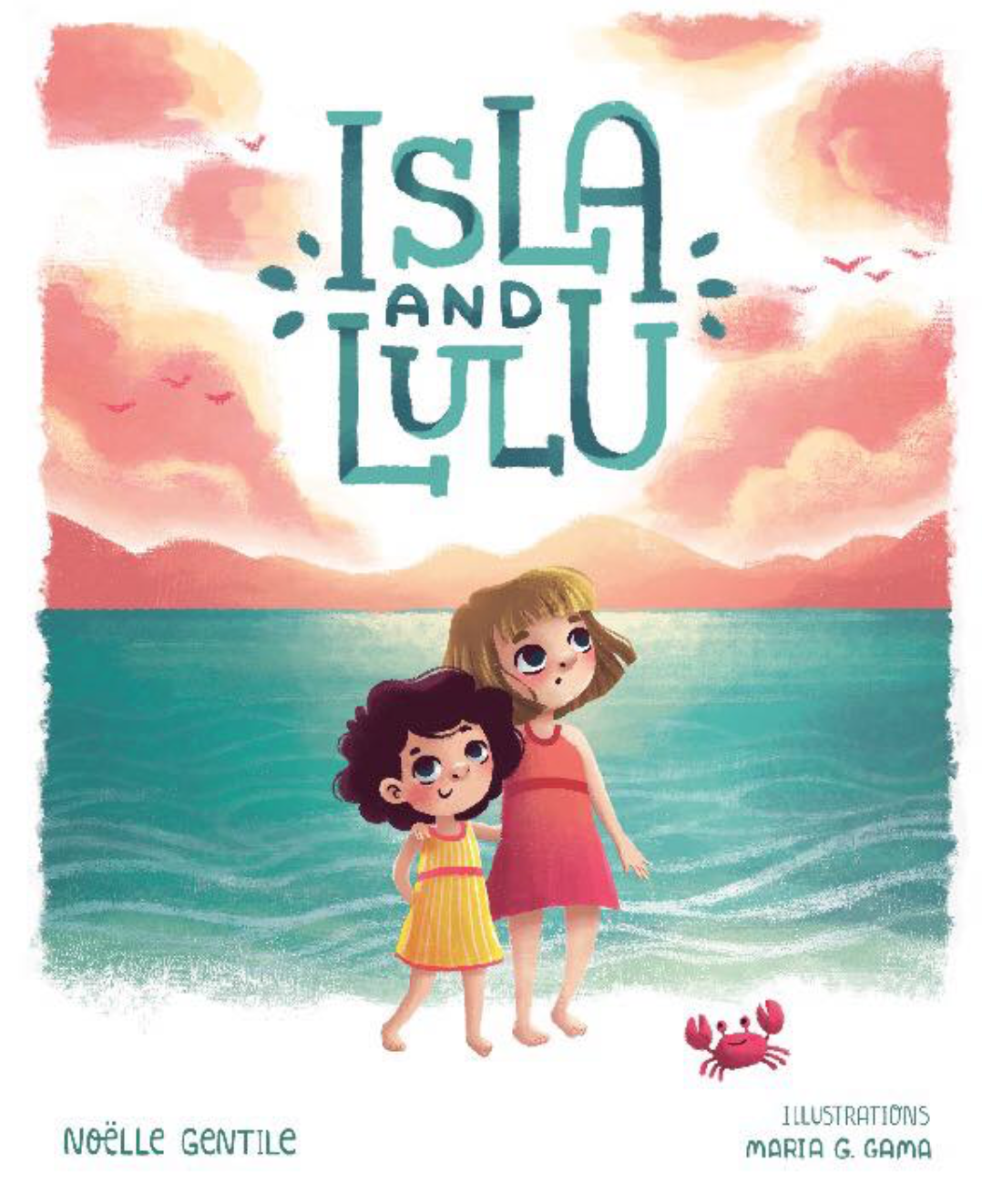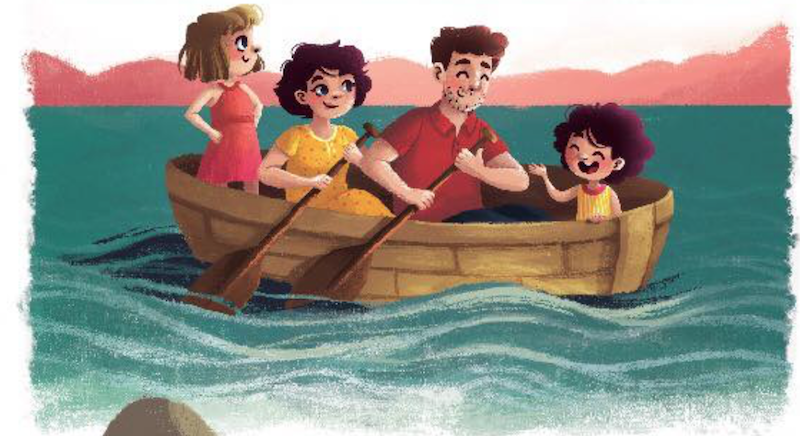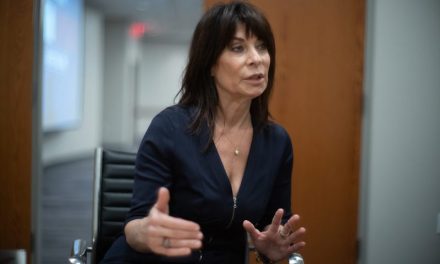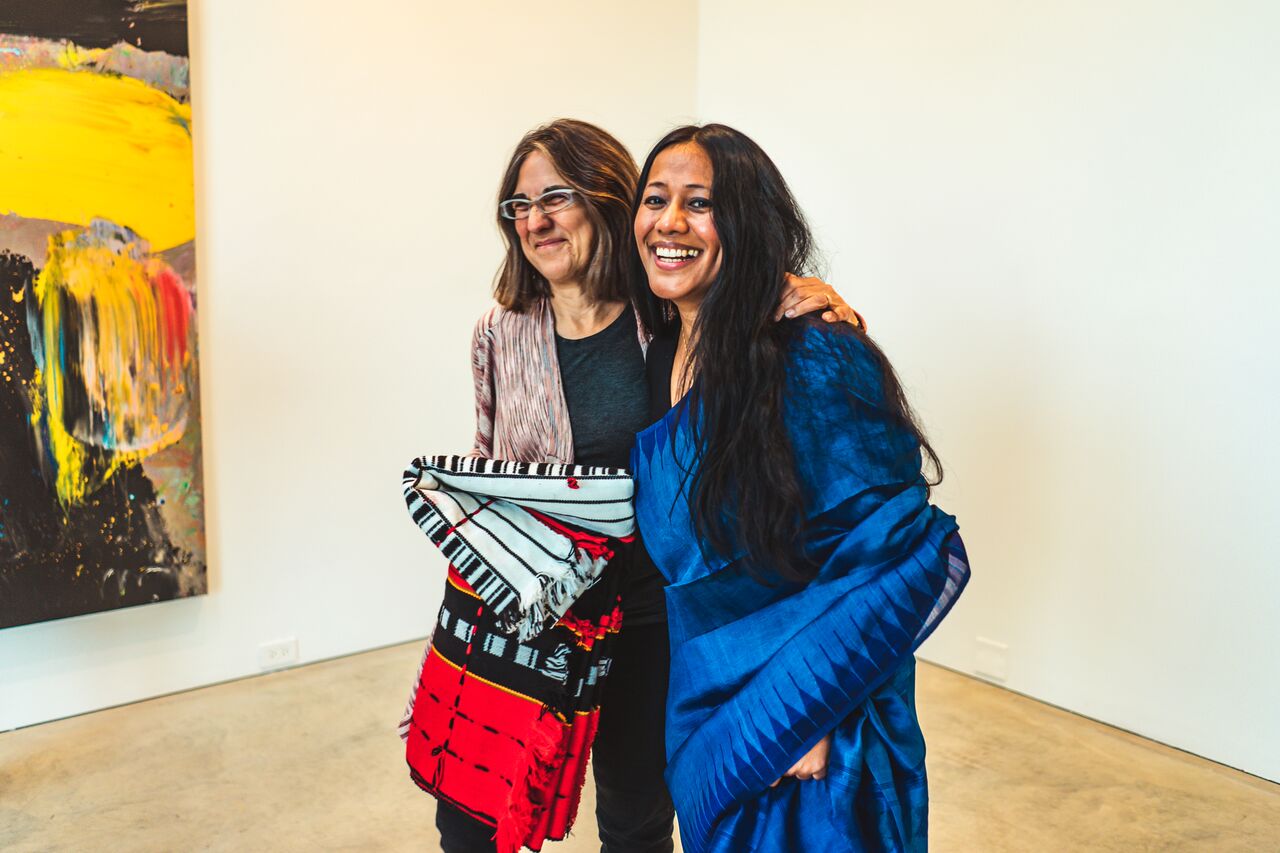Above: Back cover illustration of “Isla & Lulu” depicting Isla (far left) and her family. Art: Maria G. Gama
Albany-based theater teacher, director, filmmaker, and now author, Noelle Gentile knows how to process emotions and experiences through art. She guides her Albany High School theater class through it almost every day, their art culminating in projects like their recent, raw and deeply moving production exploring the young female experience, “Hers.” And she’s certainly not afraid to turn that healing lens back on herself.
Last year, Gentile wrote and produced a short film about her family called “Between Us,” a love letter of sorts from Gentile to her now 7-year-old daughter Isla, who was diagnosed with severe epilepsy and autism in 2016. It delves into the grief, panic, fear, courage and overwhelming love that rules the family on a day-to-day basis. This fall, Gentile will self-publish “Isla & Lulu,” a book from the perspective of her younger daughter, 4-year-old Lucia, following her as she processes Isla’s seizures and adaptability to trauma, her understanding of Isla’s different abilities and the sisters’ powerful bond.
“Obviously I wrote the book, but it’s based on a lot of Lucia’s understanding of her sister’s and her own experience in the world,” Gentile says. “It’s for both of the girls, but last summer and fall were really intense, medically, and Lulu was old enough to get what was going on and feel that the stakes were high. She was doing a lot of the things that are in the book: playing [doctor] with her dollies and talking to the therapist at school, processing her feelings. If you talk to her about what’s going on with Isla, you can understand how kids who have siblings who experience medical trauma or have different abilities, in a lot of cases, grow up a lot faster because they have to … little people understand big things.”
The book introduces Lulu’s family from her own perspective and understanding of the roles they play. It takes on Lulu coming to terms with the severity of Isla’s seizures when the firefighters and the ambulance with EMTs rush into her home to help her sister. We see her studying her parents, teaching friends at school how Isla plays differently and establishing herself as a protector of and advocator for Isla’s happiness.
“In a lot of ways, Lucia is better than Nate (Gentile’s husband) and I could ever be at connecting the bridge between Isla and other people,” Gentile says. “We try to be mindful of letting her do that in her own way and not being something that she has to do, not a responsibility.”
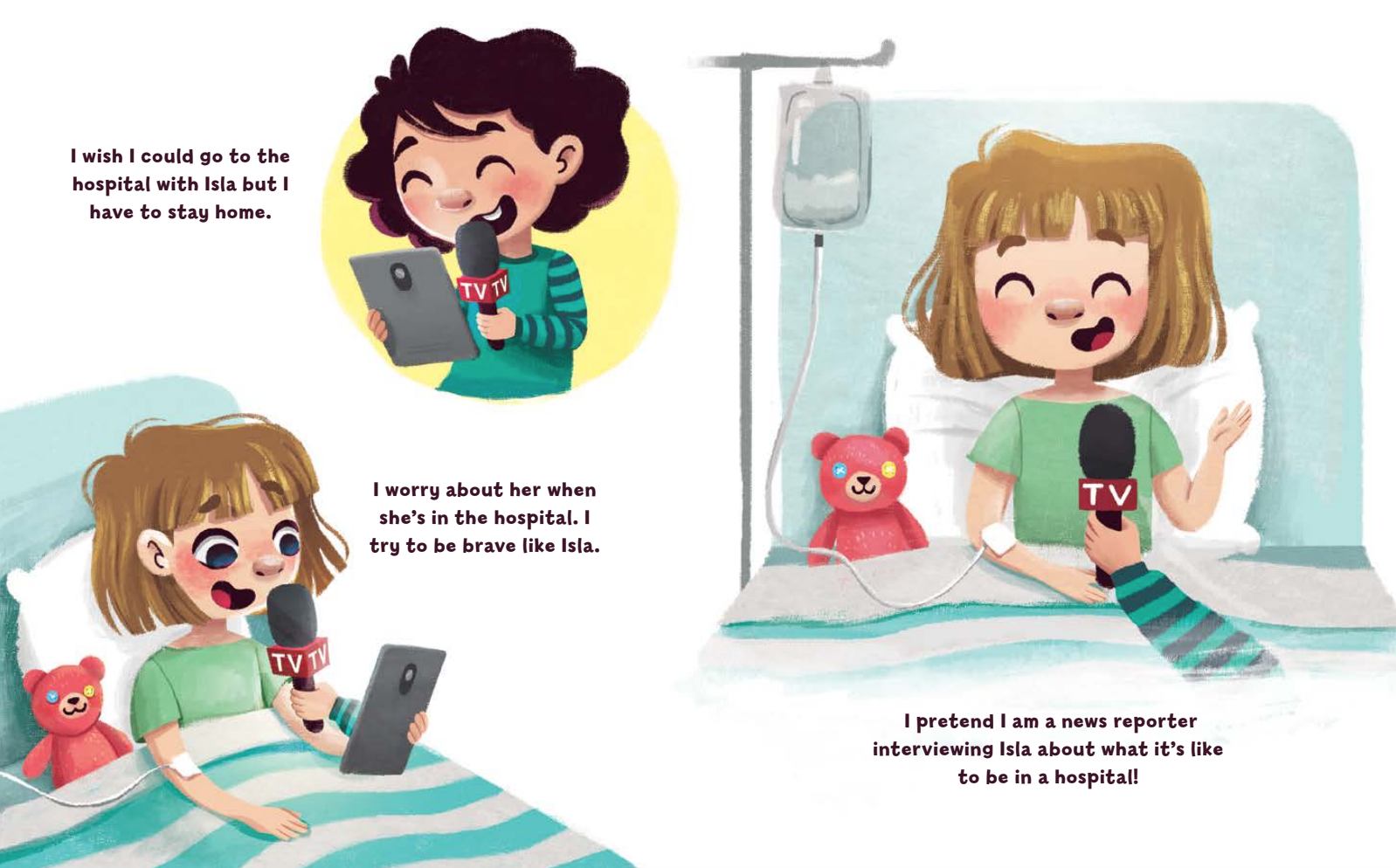
Brazilian illustrator Maria G. Gama—who connected with Gentile via the online freelancing platform Upwork—worked with Gentile for months, studying videos and photos to get the look and mannerisms of her daughters just right. Gama also went the extra mile to include depictions of Isla and Lucia’s close friends on the pages as they learn Isla’s favorite game (playing cards) and frolic in the schoolyard.
Gama’s illustrations also reflect Isla’s rich, imaginative world, communicating through characters and play worlds, Gentile says.
The soft and dreamy illustrations see the Isla become a flying superhero and Lulu as an entertainer or a doctor. The sisters turn into mermaids at play on the beach, transform their living room into a lush jungle with their blanket fort and brave the stormy, turbulent and terrifying sea of panic that is Isla’s seizures. Gama illustrates moments of triumph and moments of immense pain. It’s beautiful, gentle and kind in the face of intense, ongoing traumatic experiences.
“Sometimes there are things that are so painful that words kind of fall short,” Gentile says, flipping the book to a page that shows her family on a boat traversing turbulent water while their living room couch, toys and emergency responders float around them. “This page is really important to me because there are all these adults trying to help, but there’s really no one in control.”
She recounts a recent experience that made her realize the gravity of their “little bubble” of a family experience and Lulu’s complete understanding of it. The family was in the car on the way to a well-deserved vacation when Isla had a seizure on the Northway. They were far from home, in the middle of nowhere.
“Typically, she has a seizure and we call 911, ambulances are there in less than 5 minutes and Nate and I are ‘good.’ But there was something about being so isolated. Our adrenaline was high for like 45 minutes because the first ambulance came and then she seemed OK, so we sent the ambulance back and started driving toward Albany. Then she had another seizure after the emergency med. From there, she starts to get into that danger zone…so then Nate’s in the ambulance with Isla without his cellphone and it’s just going on forever and Lulu and I are in the car just looking at each other with tears running down our faces. We’re experiencing it together.”
The incident in the car seemed freighted with meaning. “Having to let them know that we can’t go and we have to turn back felt like the totality of our life was in the car at that moment, what we have to let go of sometimes,” Gentile says.
“[Later] I had this genuine moment,” she continues. “I realized I’m having my own adventure. In our journey together, I’ve really had to dig deep into, ‘What am I about? What is my happiness about? What is life about?’ I was happy in a different way before. This is understanding the gifts that are all around you and in the connections to people that you love. That’s not to say that I’m always connected to that realization, but it’s what I ground myself to.”
In addition to telling their story to help heal her own family, Gentile hopes “Isla & Lulu” comforts families who often experience isolation as they deal with chronic medical issues, illness and different abilities.
“In the process of writing the book I did a lot of consulting with other moms, generally, who are raising kids with different abilities, just to check in with them and make sure the language wasn’t ableist and that I was being respectful so that we can see more representation,” she explains. (Ableist language devalues people who have a disability or suggests, even inadvertently, that people with disabilities are abnormal.)
When pitching the book, publishers told Gentile the story wasn’t mainstream. “I think something that’s happening now that maybe the publishing world is starting to catch up on but doesn’t understand, is that families are wanting to expose their children to diverse stories, raising children to be inclusive and sensitive,” she says. “It’s important, and respectful, to be honest [with children] without being scary. I’ve had friends ask me how to talk to their child about Isla being autistic or ask, ‘What’s the best way to play with Isla?’”
An illustration in the book shows Isla, Lulu and their friends on the school playground doing just that: watching each other play and learning how to communicate at each other’s levels. Gentile says the image is particularly important to her because it indirectly advocates for inclusion classes in all education systems.
“This separation we see in school is so detrimental not only to those with different abilities, but also to those who are neurotypically developing,” she says. “I know we’ll look back at this time and feel shame about how we were doing things. If we seperate people in school, how do we coexist outside of school?”
“Isla & Lulu” closes with a four-page guide by Albany-based healthcare human resource generalist Loretta Longo to help readers understand different abilities, autism spectrum disorder, epilepsy and seizures—including what to do and what not to do if someone has a seizure. The section notes that girls get diagnosed with autism later in life and that one in four autistic children also have epilepsy. It also includes tips on how to better communicate with, encourage and comfort autistic friends and loved ones.
Gentile intends to use the book in workshops at schools to encourage more compassion and empathy between teachers and parents with medically fragile children and to help parents with newly diagnosed children help navigate their journey. She would like to see the book displayed in clinics and hospitals to serve as a resource for families.
She hopes readers come away with the magic that is Isla.
“I don’t need Isla to be any different than she is,” she says. “I want her to be happy, loved and respected. I want her to be encouraged to grow and learn to her greatest potential, to not underestimate her. It’s not just a one way street of people giving to Isla, Isla is giving back to people, too.”
“Isla & Lulu” will be released this fall.
